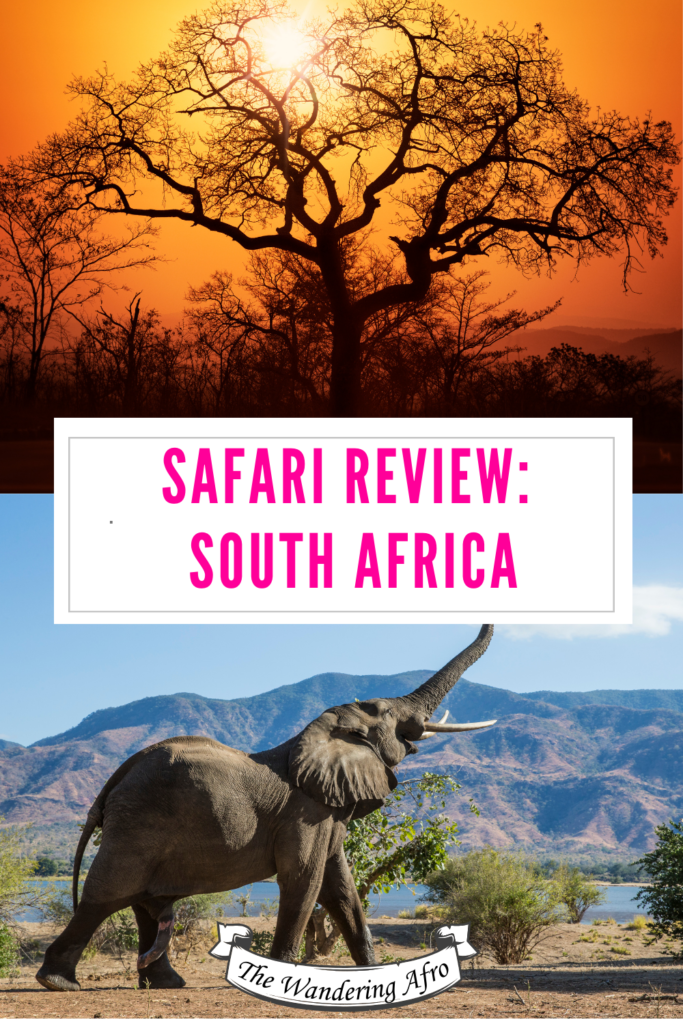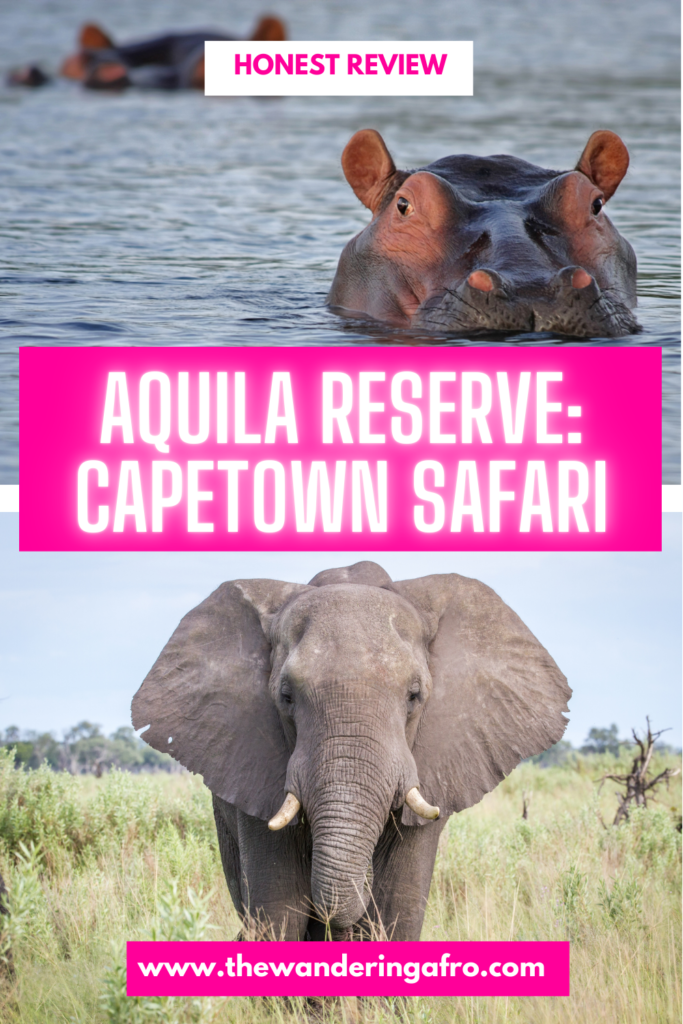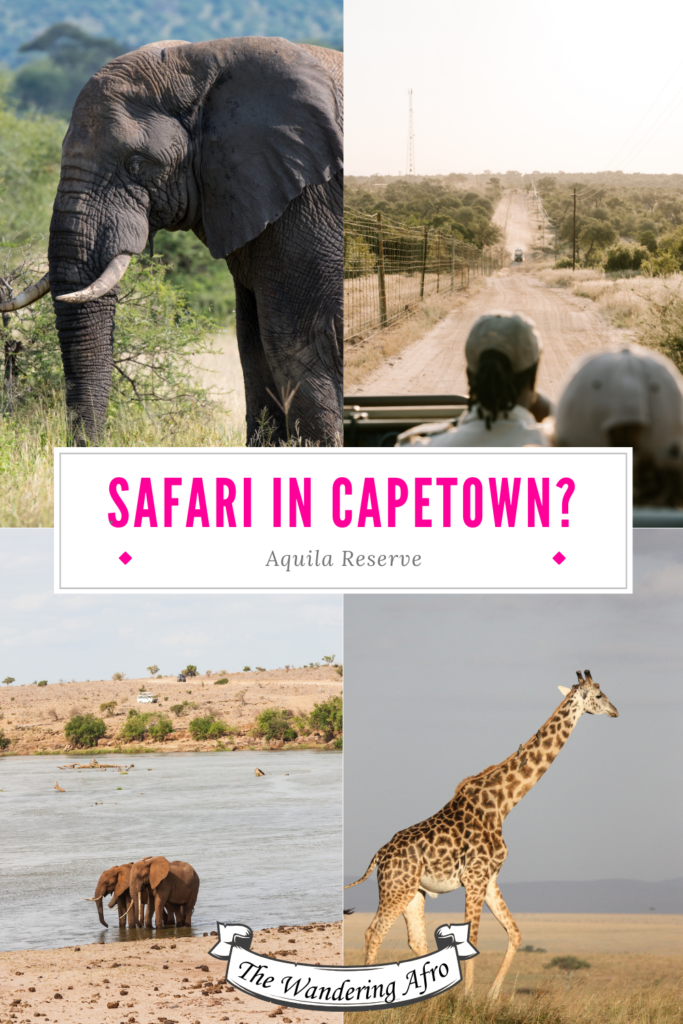Visiting Aquila Safari was at the top of my bucket list when visiting Cape Town, and I know I’m not the only one. East Africa is well known for its requisite safaris, allowing you to see lions, elephants, hyenas, and more. There are many safaris, but finding the one that fits your needs can be a bit more complicated. You want to ensure that the safari you’ve chosen engages in sustainable practices, provides a good experience, and has excellent customer service. In my opinion, Aquila Safari does not hit all of those marks.
How Far is Aquila Safari from Cape Town?
Aquila Private Game Reserve is about 180 km/ 112 miles from Cape Town. With regular traffic, it will take about 2.5 hours to drive there. It’s definitely something you want to drive to earlier in the day.
Hotels
Get the best rates on hotels and private accommodations.
Car Rentals
Renting a car can be easy and stress-free.
Activities
Looking for the best things to do? I’ve got you covered.
How to Get to Aquila Safari from Cape Town?
There are a few different ways to get to Aquila Safari Lodge. You can drive there, hire a private car, or take the shuttle bus or helicopter. The road there seemed pretty easy to maneuver if traveling by private car. You can contact Aquila for shuttle bus rates and times. They also offer a helicopter ride, but you must inquire about pricing.
My Review


After arriving at Aquila Safari, the check-in process was very simple. I was sent to the buffet area to wait for my tour. There were a few vegetarian side dishes. The layout was very clean and orderly, but the food was a bit bland, and there weren’t many options, especially if you follow any vegan, gluten, or halal dietary plans. Drinks, not even a bottle of water, are not included in your ticket. And there aren’t any places to fill up your water bottle, which is a bad look for a place that markets itself as sustainable.
How are the animals treated at Aquila Safari?
The safari grounds felt more like a large enclosed zoo, than an actual safari. The animals had the freedom to move around, and it was very spacious, but it wasn’t the wild experience I thought a safari would be.
Our tour guide did an excellent job rounding us up to leave on time. He explained things about the animals in detail and seemed very knowledgeable.
We were able to see elephants, hippos, zebras, and antelopes. He told us that we might be able to see the lions, but he couldn’t find them. Giraffes need tall trees in their habitats, but Aquila Safari has few tall trees. Most of the time, I saw giraffes straining their neck to eat from short trees. I’m no zoologist, but that is bad for their bone structure. And I’m unsure why South Africa allows them to live like this.


We made a few stops that didn’t really add much to the trip. They weren’t good photo opportunities or places to see animals. They were just random stops. And the guide didn’t offer to take photos of guests (it’s not his job but it would be nice for them to offer photo opportunities for families and solo travelers).
The trip’s highlight was an elephant deciding to play with a guest in front of the safari vehicle. But overall it was a bit boring. The tour was advertised as 2-3 hours, but ours was much shorter. I spent more time traveling to Aquila Safari than actually being on the safari. There were also at least 15 people on each safari vehicle.
Is Aquila Safari Ethical?
I believe that South Africa has much better safaris elsewhere. I wouldn’t recommend it in good faith. Between lackluster customer service, bland food, and small amounts of animals, I would not recommend this as a bucket list item in Cape Town. And I do not believe Aquila Safari is an ethical, sustainable safari and lodge.
Game Reserves Near Cape Town


Looking for a more authentic experience? Consider checking out a reserve. You’re probably going to have to do a bit of driving. Here are five gorgeous game reserves near Cape Town. Please make sure to do your research on their latest sustainability practices.
What’s the Difference Between a Safari and a Game Reserve?
Going to South Africa taught me that there is a difference between a safari and a game reserve. A safari refers to the experience of exploring natural habitats to observe wildlife, often through guided tours or game drives. It’s a journey focused on witnessing animals in their native environments, whether on foot, by vehicle, or even from the air.
On the other hand, a game reserve is a designated area of land where wildlife is protected and conserved. These reserves are often established to safeguard endangered species and provide a sanctuary for animals to thrive without human interference. Essentially, a safari is an activity, while a game reserve is a location where these activities typically take place.
- Inverdoorn Game Reserve
- Grootbos Private Nature Reserve
- Garden Route Game Lodge
- Fairy Glen Game Reserve
- Thali Thali Game Lodge
What To Pack for a Safari?
I was very unprepared for the safari. For one, the weather is actually pretty chilly, so make sure to bring a jacket. Sunglasses will come in handy due to the direct sunlight. If you bring a camera, make sure to bring extra batteries. Consider bringing a solar phone charger as well. There’s nothing worse than seeing a lion but your phone is too dead to capture a photo.
Here are a few other things to bring:
- Light, breathable clothing – Neutral- or dark colored clothes to blend in with the environment, so as to not scare off animals.
- Comfortable walking shoes – Lightweight, closed-toe shoes for protection and comfort.
- Binoculars – To spot wildlife and vegetation from a distance.
- Sun protection – Hat, sunglasses, and earth-friendly sunscreen to shield from the sun.
- Insect repellent – To guard against mosquitoes and other insects. You’re going to need this.
- Reusable water bottle – Stay hydrated during long game drives. Pack electrolytes as well.
- Medication – Any prescriptions or basic first aid supplies.
These essentials will keep you comfortable and prepared for a memorable safari experience!
Read more:
Did you find this post helpful? Please consider pinning it on Pinterest with the images below or following me on Instagram xoxo!








